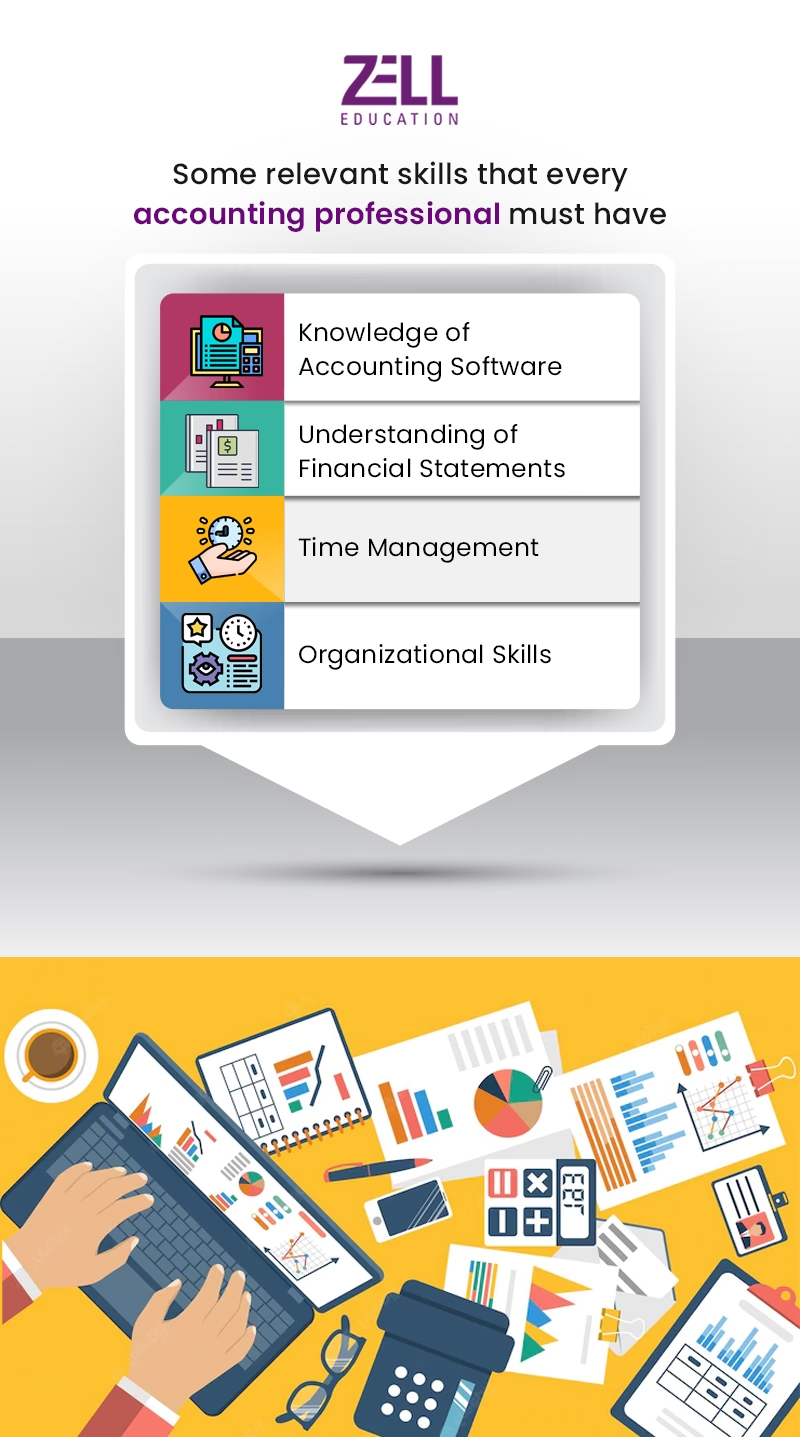If you are interested in pursuing a career in accounting, you would be curious to know what skills are required for that. Well, here’s the bright side of things: several general skills can form the foundation of becoming an effective accountant. In this blog post, we will mention the most crucial accounting skills for beginners, such as accounting software knowledge, knowledge of financial statements, time management, and organisational skills implemented at the accounting firm.
Accounting Skills for Beginners
Business Knowledge
Having a foundation of knowledge in business practice and principles is essential. This involves understanding financial statement preparation, taxation laws, auditing, and general business operations. A solid base of business knowledge allows accountants the ability to analyse financial data into something valuable for clients’ needs.
Technology Expertise
One of the most vital skills that anyone would wish to acquire in an accounting firm is how to use accounting software. Many various types of accounting software applications have been developed, including QuickBooks, Xero, Sage, and so on. These will hopefully assist you with maintaining track of your finances and accountabilities, keeping you on track of how your expenditures are occurring, and allowing for easy report generation. Surely, to become an expert at a professional accounting firm, it would be of much benefit to have experience regarding how most of these software packages operate.
Communication Skills
Communication in an accountancy firm is important when trying to communicate complex financial information. The accountant should be skilled in verbal and written communications regarding financial strategies, reports to clients, and responses to various client inquiries. Good communication strengthens the relationship with clients as well as good teamwork with other members of the firm.
Flexibility & Adaptability
The dynamic world of accounting requires adaptability and flexibility to adapt to changing regulations, technologies, and client needs. A change in strategy and approach needs to be done at breakneck speed with new requirements and deadlines. Adaptability helps accountants thrive in diverse workplaces and cope with unforeseen hardships.
Creativity & Problem Solving
Creativity is valuable in accounting and finance, as it allows one to think outside the box in solving complicated financial problems and finding an innovative solution. Most accountants face a challenge that requires creative skills in solving problems efficiently. This implies that by using creativity in combination with analytical thinking, one will identify new opportunities and streamline financial processes.
Customer Service
Accountants play the most critical role in providing excellent customer service to clients through timely and accurate financial advice and support. Developing a strong relationship with the client demands attentiveness, empathy, and responsiveness to the needs of the client. Excellent customer service builds trust and loyalty, enhances the reputation of the firm, and brings in new business opportunities.
Analytical
The ability to read financial statements is another key skill of accountants. Financial statements are papers that reveal the health of a company. They are mainly presented as a balance sheet, income statement, and cash flow statement. One must know how to read and interpret these statements to offer the right kind of information to clients and colleagues.
Organisational Skills
Accountants ought to be well-organised with the financial records and documents because they need to manage and keep files, documents, and reports in a quite clear and organised manner. As a result of being better organised, one can improve his work effectiveness and efficiency toward reducing errors and mistakes.
Critical Thinking
For example, to analyse financial information critically, which will allow identification of trends and a well-informed decision by accountants. Therefore, they have to dissect complex information, weigh risk assessments, and determine likely scenarios to recommend strategic options for the client. Well-developed critical thinking skills assist accountants to interpret correctly the financial implications and act on them while reducing potential risks.
Curious To Know About Accounting Skills?
Conclusion
All in all, to join an accounting firm, one needs to acquire a variety of skills. This includes knowledge about accounting software, understanding of financial statements, time management skills, and organisational skills. All these are achieved through working on them and increasing the chances of succeeding in this challenging and rewarding field.
Remember that these skills can be developed over time with practice and dedication. Whether you are a new accountant or looking to advance your accounting career, focusing on these essential skills would help you achieve what’s best for you. Then do not be afraid of taking new challenges and other opportunities; with the right skill, you can succeed in the world of accounting.
In case you are interested in details related to accounting and finance, then do not hesitate to contact us at Zell Education, and we’ll be glad to counsel you.
FAQ
What skills do you need for an accounting job?
The essential skills to be possessed by an accounting professional include analytical thinking, attention to detail, knowledge of accounting software, and in-depth knowledge of financial regulation.
What are strong accounting skills?
Accounting skills involve skills and knowledge in financial reporting, auditing, budgeting, and taxation, along with the capability to analyse and interpret financial data.
What are the basic soft skills of an accountant?
Basic soft skills of an accountant include good communication, time management, teamwork, flexibility, and solving problems.
What are the three golden rules of accounting?
The three golden rules of accounting are:
Debit the receiver, credit the giver
Debit what comes in, credit what goes out.
Debit expenses and losses, credit incomes and gains.

